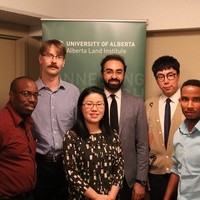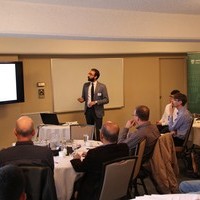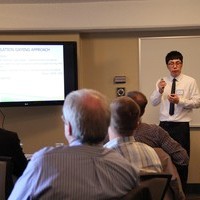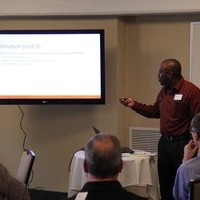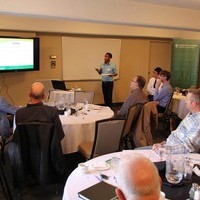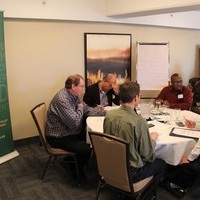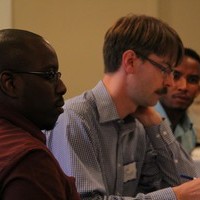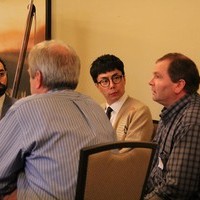Engaging The Experts: Irrigation Research Team Hosts Workshop In Lethbridge
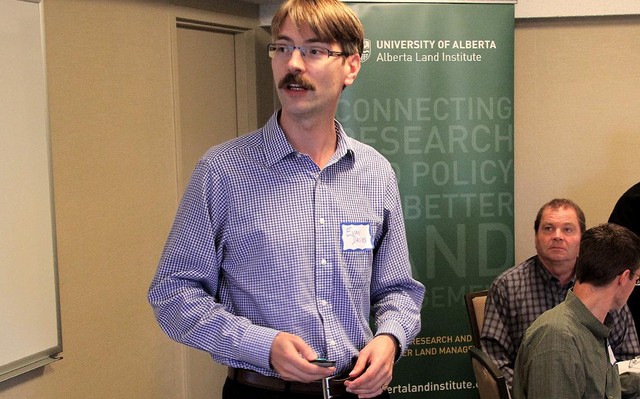
Dr. Evan Davies, Associate Professor in the Department of Civil and Environmental Engineering at the University of Alberta and Principal Investigator.
How might a certain policy influence water demand in Alberta, under specific climate or economic conditions?
No model can predict the future with perfect accuracy, but by providing quick and easy-to-use simulations based on real-world data, systems models like the ones being developed for ALI's project Systems Modeling and Sustainable Land and Water Policy in Alberta’s Irrigation Sector can highlight potential trends, and possible consequences. Policy makers can bear those possibilities in mind as they shape policy, and seek more specific information whenever necessary.
However, the usefulness of models can be limited if they are not well-constructed, or properly calibrated.
Years of research and work have gone into the construction of the project's models, and as that building process nears completion, the research team is seeking additional insight from irrigation experts to aid with calibration. The integration of real-world experience and non-theoretical data has already proved essential to this project. Last year, Marie-Ève Jean engaged directly with reservoir managers to learn about how Alberta's reservoirs are operated. At the same time, Mohamed Ammar gathered scientific data to drive a crop module which can simulate the growth a variety of Alberta crops over a long period of time.
On Friday, December 4, 2015, this type of direct engagement continued when members of the project research team traveled to Lethbridge, Alberta, to host a workshop with more than twenty irrigation experts. Representatives from the Alberta government, irrigation district managers, and irrigation farmers and ranchers were on hand to see some of the team's preliminary results, and to provide feedback about the models' design and function.
The workshop was highly successful thanks to the enthusiastic participation of the attendees, and the determination of the researchers to seek real-world insights. All of the information collected during the workshop is now being organized, and in the weeks ahead members of the team will begin following up on a variety of different data sources that were offered or suggested by those present.
The Systems Modeling and Sustainable Land and Water Policy in Alberta’s Irrigation Sector project is set to wrap up in 2016. Thanks to the continued engagement of irrigation experts, the research team expects to have well-calibrated systems models which can provide valuable insights for policy makers examining water management issues in Alberta, for years to come.
For more information about this project, download a backgrounder here, or visit its website.
